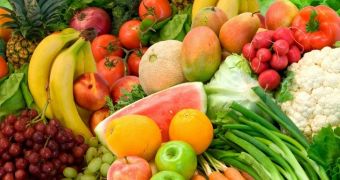A new paper in the American Heart Association's journal Stroke says that, according to evidence at hand, fruits and vegetables have the potential to make people less vulnerable to strokes.
The only problem is that, in order for fruits and vegetables to have this effect, folks are supposed to not only buy them and store them in their refrigerators, but also eat them.
The specialists behind this investigation explain that, by means of a meta-analysis of 20 previous studies, they have found that eating 200 grams of fruits daily cuts stroke risk by 32%.
By comparison, a daily intake of about 200 grams of vegetables appears to reduce stroke risk by 11%, the researchers go on to explain.
It is believed that fruits and vegetables lower stroke risk by improving vascular function and having a positive impact on blood pressure, EurekAlert informs.
Then again, it is also possible that they benefit health by helping people maintain a normal weight and by fighting inflammation and oxidative stress.
“Improving diet and lifestyle is critical for heart and stroke risk reduction in the general population,” says specialist Yan Qu, M.D..
Furthermore, “In particular, a diet rich in fruits and vegetables is highly recommended because it meets micronutrient and macronutrient and fiber requirements without adding substantially to overall energy requirements.”

 14 DAY TRIAL //
14 DAY TRIAL //